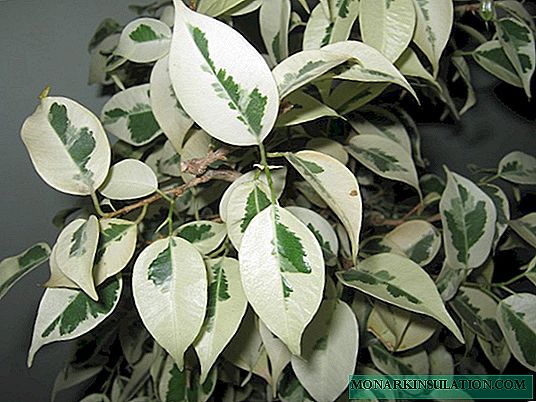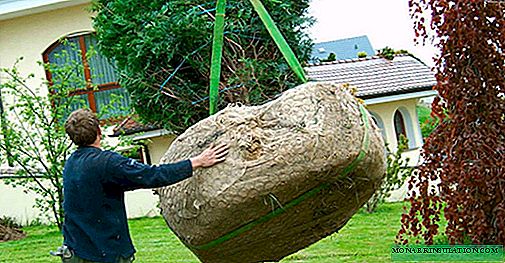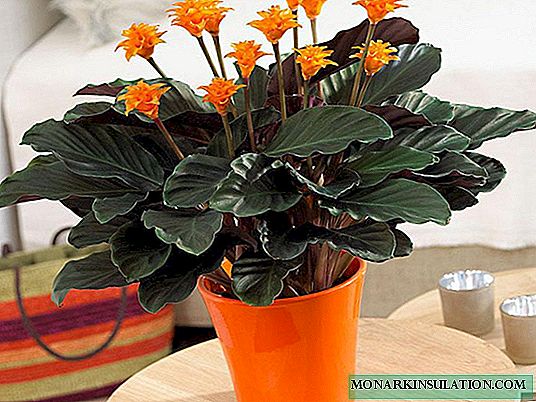
It is so pleasant to retire in the garden after a hard day's work or sit on the lawn by the pond in order to relax, rest and enjoy the sounds of nature. And what kind of garden furniture do most associate with a comfortable rest? Yes, a garden deck chair! A convenient portable elongated chair, in addition to direct functional value, will act as a spectacular exterior element that emphasizes the style of a summer cottage. There is nothing difficult in making a garden deck chair with your own hands. We have selected for you several options simple in the manufacture of sun loungers. Among them, it will not be difficult to choose a suitable model, which anyone can build.
Option # 1 - chaise longue from a wooden lattice
Such a chaise lounge can be safely used instead of a bed: a flat surface, an adjustable back. What else do you need for an afternoon break ?! The only drawback of this design is that it is very problematic to move it around the site itself.

Sun loungers of this design are very popular among vacationers on the coast and among the owners of suburban areas
But there is a way! We suggest you consider the option of a deck chair equipped with rollers. To make a deck chair you need to prepare:
- Boards 18 mm thick of glued spruce wood;
- Wooden bars 45x45 mm (for the frame);
- Boards with a thickness of 25 mm for lining the sidewalls;
- Electric fret saw and screwdriver;
- Drills with a diameter of 40 mm for wood;
- 4 fixing corners for beds;
- Countersunk screws;
- 4 rollers with a height of 100 mm;
- Sanding sheet with a grain size of 120-240;
- Varnish or paint for woodwork.
Plates of the required size can be purchased at a carpentry workshop or at the construction market. When choosing plates, it is better to give preference to products from coniferous species, since they are more resistant to atmospheric precipitation.
The size of the deck chair depends on the desire of its owner. In most cases, the structure is made 60x190 cm in size. Having decided on the dimensions of the deck chair, we make two long and two short sidewalls from wooden blocks. From them we assemble the frame of the structure, fixing it together with the help of fixing angles. The outer side of the frame is planked with boards.

On long planks at a distance of 5-8 cm from the corner, we fix the legs of a deck chair, the material for the manufacture of which were bars 5-10 cm long
We fix the legs to the boards using 60 mm screws.

We mount the wheels: in the center of the short legs of the deck chair we install the rollers, fixing them with screws 30 mm long, equipped with a semicircular head with a diameter of 4 mm
To make a wooden lattice using a jigsaw, we cut boards of 60x8 cm in size from the plates.

We attach the straps to the plank bed on the screws, leaving a gap of 1-2 cm. To maintain the clearance, it is most convenient to use special struts
When planning to make a chaise lounge with an adjustable backrest, the lattice should be divided into two parts: a sunbed and a headboard. We put both parts on the connecting boards and fasten together using a door hinge.

To equip the mounting plate between the long bars of the deck chair frame, we fix the transverse rail. On the mounting plate we fasten the support rack, fixing it on both sides with screws
The finished deck chair can only be processed by walking with a grinder and opened with varnish or paint.
We offer you to watch a video that shows how such a model of a deck chair is assembled:
Option # 2 - fabric chaise lounge on the frame
Another no less popular model of a deck chair, which can be folded, giving an almost flat shape.

It is convenient to move a light armchair around the site, choosing open sunny glades for relaxation, or, on the contrary, corners shaded and hidden from prying eyes in the garden
To make a folding deck chair you need to prepare:
- Reiki of rectangular section 25x60 mm thick (2 parts 120 cm long, two 110 cm long and two 62 cm long);
- Reiki of circular cross section with a diameter of 2 cm (one piece 65 cm long, two 60 cm each, two 50 cm each);
- A piece of durable fabric measuring 200x50 cm;
- Nuts and furniture bolts D8 mm;
- Fine-grained sandpaper and round file;
- PVA glue.
Reiki is best made from species with solid wood, which include birch, beech or oak. For the manufacture of a chaise lounge, it is better to use fabrics that are characterized by increased strength and resistance to abrasion. For example: canvas, tarpaulin, jeans, mattress teak, camouflage.
We cut the slats of the required length. Using sandpaper, carefully grind the surface.

According to the scheme, where A and B denote the main frames, B represents the stop-regulator, we collect the main structural elements
In the long rails of the main frames at a distance of 40 and 70 cm from the corners of the structure, we drill holes with a diameter of 8 mm, and then grind them using a round file.
So that you can change the position of the back in the deck chair, in frame B we make 3-4 cutouts at a distance of 7-10 cm. To equip the seat, we drill holes with a diameter of 2 cm, departing from the two ends of the rails. We install cross-members in the holes - round slats, the ends of which were pre-lubricated with PVA glue.

We begin to assemble the deck chair: we connect parts A and B with the screws inserted through the upper holes. By the same principle, we connect parts A and B, only through the lower holes
The frame is assembled. It remains only to carve and sew a seat. The cut length is determined by the possibility of folding. Too short a cut will not allow the deck chair to fold, and an excessively long cut will sag in the disassembled position. To determine the optimal length, you need to fold the deck chair and measure the fabric: it should be slightly stretched, but without effort.
A piece of fabric with machined edges is nailed to the round slats located on parts A and B. To do this, wrap the cross-pieces around the edge of the cut, and then fix them with small cloves with thick hats. A variant is possible in which "loops" are made at the edges of the cut and put them on the crossbars.
Option # 3 - Kentucky folding chair
The original chair is assembled entirely from bars. If necessary, the chair can always be folded and put into storage.

The advantage of such a garden chair is that when disassembled, it does not take up much space, while the design is designed so that you can completely relax the muscles
To make a chair we need:
- Wooden bars measuring 45x30 mm;
- Galvanized wire D 4 mm;
- 16 pieces of galvanized staples for fixing the wire;
- Fine sandpaper;
- Hammer and nippers.
For the manufacture of the chair, blocks of 50x33 mm in size can also be quite suitable, which can be obtained by sawing a 50x100 mm board into three equal parts. The total length of the bars should be 13 meters.
Instead of galvanized wire and brackets, you can use galvanized studs, the edges of which are secured with eight nuts and washers.

To determine the required number and length of wooden blocks, it is convenient to use a summary table. According to the drawing, we make through holes
The diameter of the holes should be 1.5-2 mm larger than the thickness of the wire used. Having prepared the required number of bars, it is necessary to carefully process all the faces, sanding the surface with the help of fine-grained sandpaper.
We proceed to the assembly of the structure.

For clarity, we use the assembly diagram of the seat with dividers, as well as the back of the chair. Dotted lines indicate the locations of through holes with wire threaded through them.

On a flat surface according to the scheme, lay out the bars for arranging the seat. Through holes for wire passes

Using the same principle, we assemble seats with dividers, connecting wooden blocks with pieces of galvanized wire
The main structural elements are assembled. We take up the ends of the wire, holding the sides of the structure, and carefully raise the chair.

It remains only to cut off the excess wire with wire cutters, and then bend and fasten the ends with galvanized staples
Chaise lounge for a summer residence: 8 do-it-yourself models
Garden chair ready. If desired, it can be coated with semi-matt varnish for woodwork. This will significantly extend the life of such a popular element of garden furniture.











